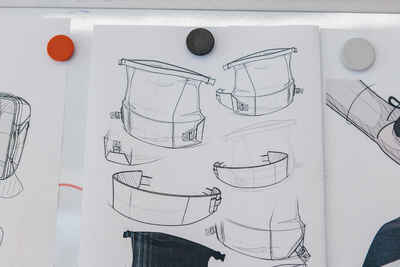Kids' Futsal Shoes Ginka 500 - Red/Black
Store Availability
Store availability
product.ecodesign.title.tag
With ecodesign, we reduce the environmental impact of our products.
Analysing the product's environmental footprint enabled us to identify the most impactful stages of its life cycle. Thanks to this approach, our design teams were able to develop this product while significantly reducing its environmental impact.
Ecodesign actions on this product
-
 Environmental Impact
Environmental ImpactDesigned to reduce environmental impact
Product made with a CO2eq reduction of 20% compared to the previous or similar product
Our design teams are working to develop processes that will reduce the impact of a product, while preserving its technical characteristics. This reduction relates to the following indicators: climate change, air pollution, water pollution and resource depletion.
-
 Environmental Impact
Environmental ImpactDesigned to reduce environmental impact
Product made with a CO2eq reduction of 20% compared to the previous or similar product
Our design teams are working to develop processes that will reduce the impact of a product, while preserving its technical characteristics. This reduction relates to the following indicators: climate change, air pollution, water pollution and resource depletion.
-
 Material
MaterialRecycled polyester
Product made from 18% recycled polyester
Using recycled polyester rather than conventional polyester reduces the CO2 emissions linked to the material by at least 16%.
-
 Material
MaterialRecycled polyester
Product made from 18% recycled polyester
Using recycled polyester rather than conventional polyester reduces the CO2 emissions linked to the material by at least 16%.
-
 Material
MaterialSilica-based rubber from rice husks
Product made from 10% silica-based rubber from rice husks
Using silica-based rubber from rice husks rather than conventional rubber reduces the CO2 emissions linked to the material by at least 17%.
-
 Material
MaterialSilica-based rubber from rice husks
Product made from 10% silica-based rubber from rice husks
Using silica-based rubber from rice husks rather than conventional rubber reduces the CO2 emissions linked to the material by at least 17%.
